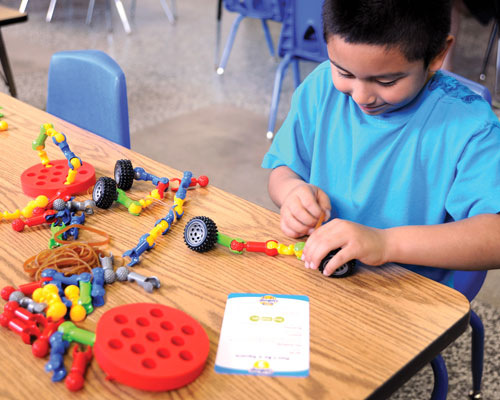Whether it's a marriage between soulmates, a friendship between "besties," or two organizations working for one outcome, long-lasting partnerships endure through the good and maybe not-so-good times because they're built on a solid foundation of trust.
When working with young people—our most precious resource—solid, long-term relationships between the school and the afterschool manager are integral to addressing day-to-day items and any extraordinary circumstances. In the case of a school and its afterschool program manager, that long-term relationship is often the cornerstone of the successful partnership.
But how do you get to that point? What are the keys to a long-term partnership between a school and its afterschool program manager?
The professionals at Flex Academies, a national industry leader in before-school and afterschool program management, offer points to consider. If you're an afterschool program manager who has mastered the following four keys, you're on your way to a solid, long-term partnership.
1. Make safety the No. 1 priority.
School's cite safety as their biggest concern and appreciate an afterschool manager with dedication to school safety. A good afterschool program manager makes young people's safety the first priority, which schools have a right to expect.
2. Know the community and the district.
With a solid relationship between the school and the afterschool program manager, extracurricular activities can grow naturally with the program. As schools and districts evolve, some programs might change or even be eliminated. For example, a school district might cut an arts or music program. With a strong relationship, the afterschool manager can help the school "fill in the gaps." As the long-term afterschool program manager gets to know the school district, they can adapt programs to better fit local needs.
3. Understands how the school works.
Schools have their unique quirks in terms of how they want things to operate. If you think about it, that makes sense. Schools accommodate hundreds—often thousands—of students with different academic, social and physical needs. Perhaps more than other institutions, schools are so focused on safety and efficiency that it's no wonder they want things in done specific ways. Knowing these quirks—what schools want, how their processes work and what their parents' concerns are—is key to a successful, long-term relationship between a school and an afterschool program manager. Typically, there is an agreement or even a contract. But there are little things you can do that go beyond a contract—things that can't be reflected on paper. When schools and the afterschool program manager work together for an extended time, they know how to collaborate and get things done.
4. Listen and be responsive.
In any good partnership, sometimes the key to the long term is the ability to listen. A good program manager listens to the needs of the school and families and responds with solutions.
Like everything else, schools change: Their students move on to the next level, curriculum changes—even the buildings go through alterations over time. All this change can create minor challenges or major obstacles to an afterschool program. A strong partnership between the school and the afterschool program manager allows challenges to be addressed collaboratively to benefit everyone involved—especially young people and their families.
Courtesy of Flex Academies.




